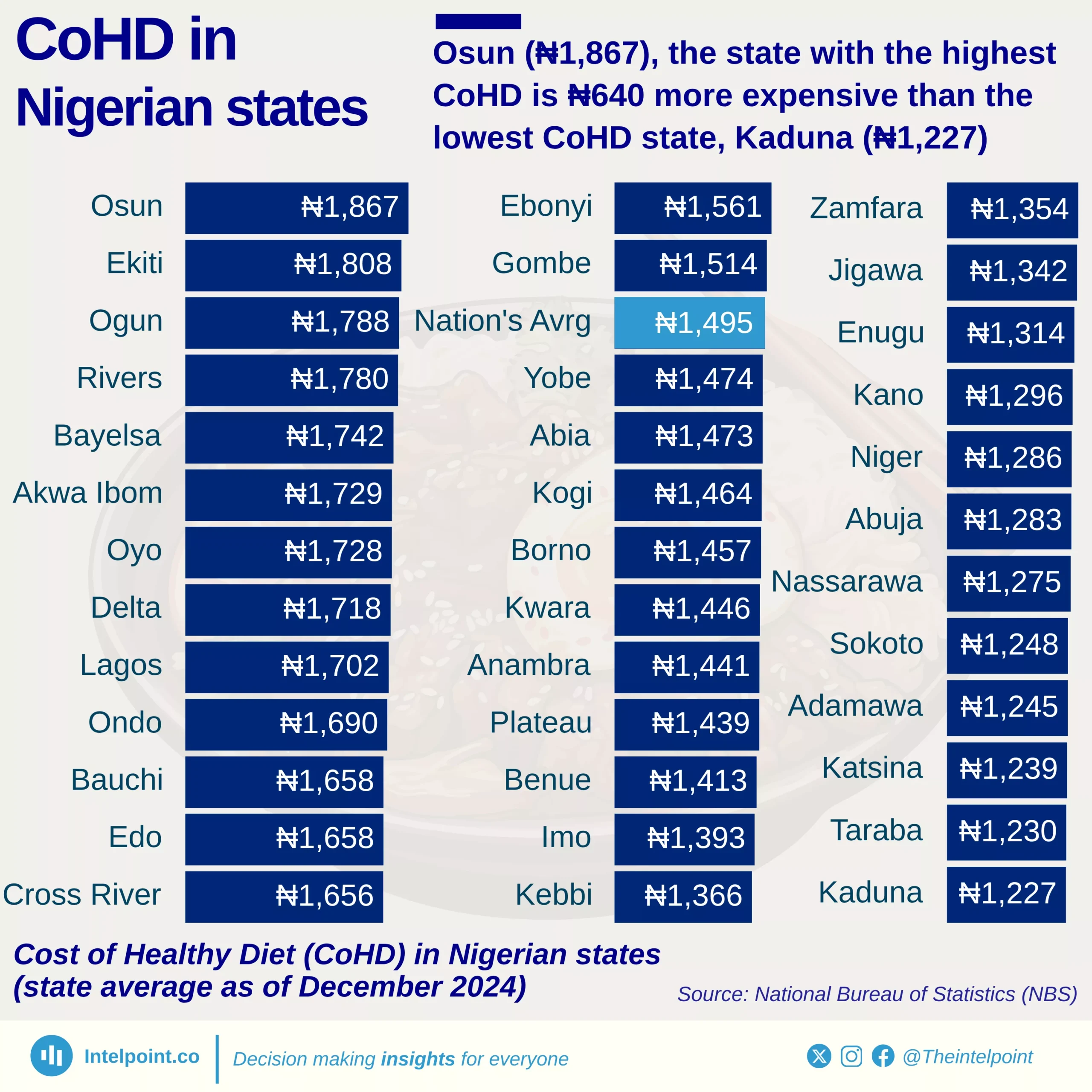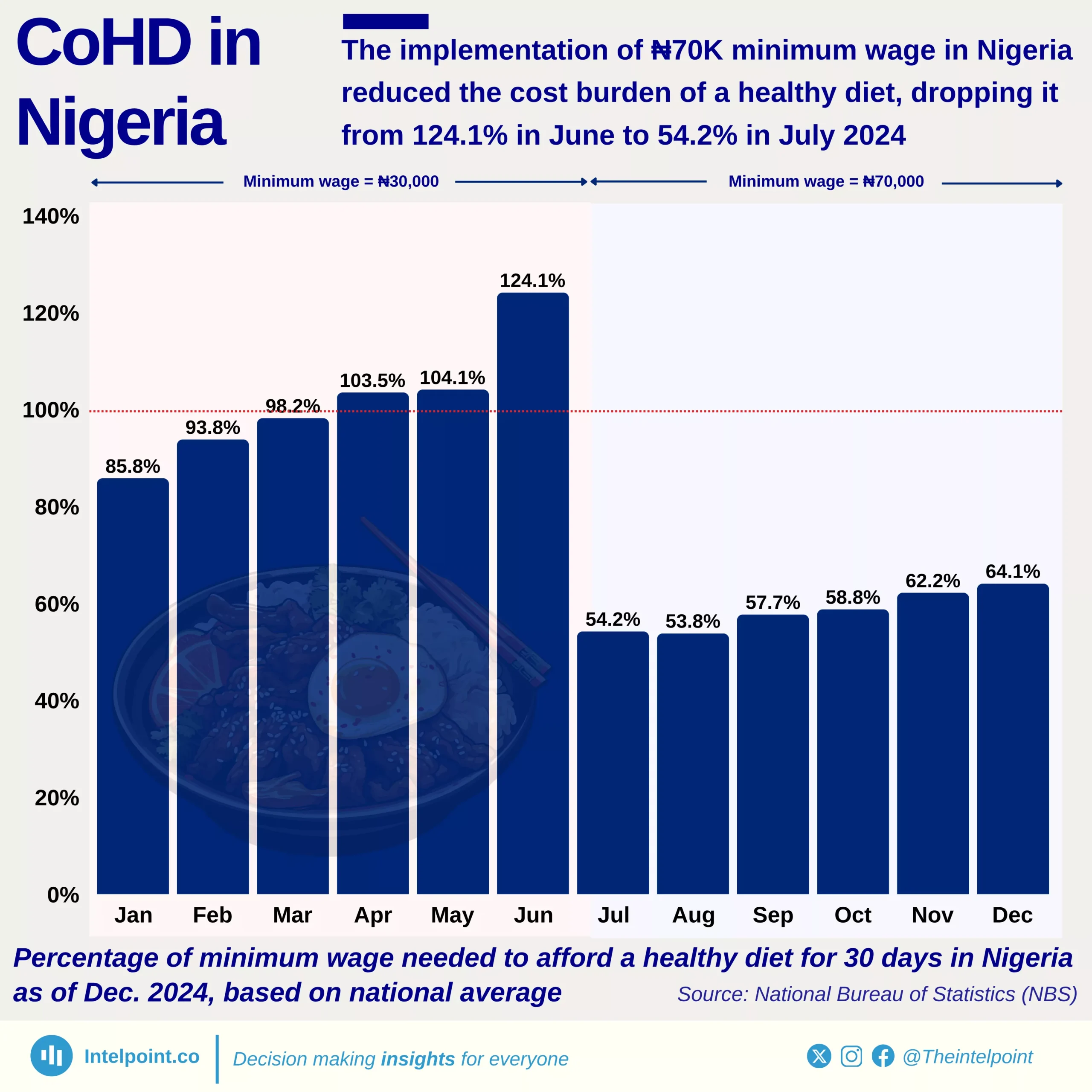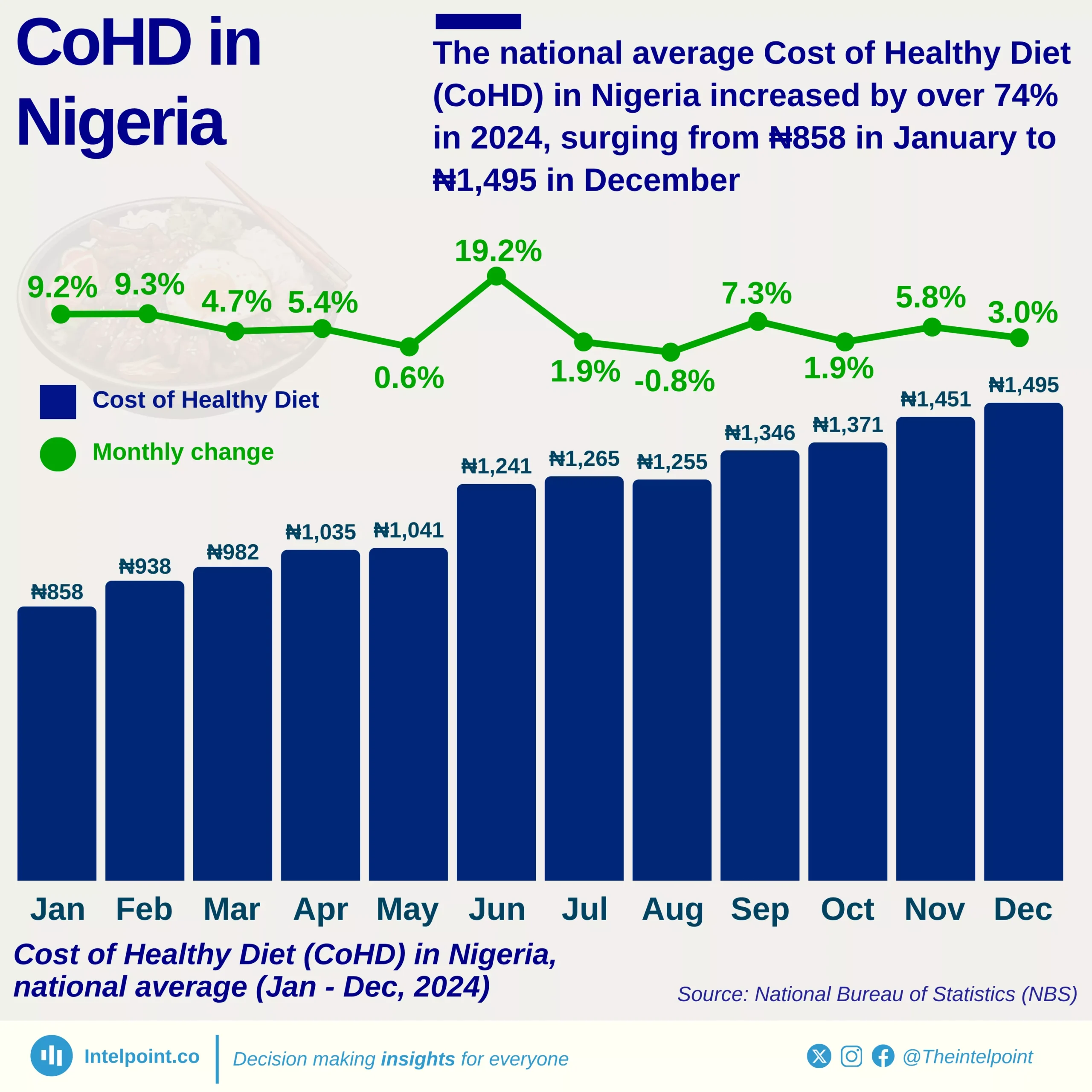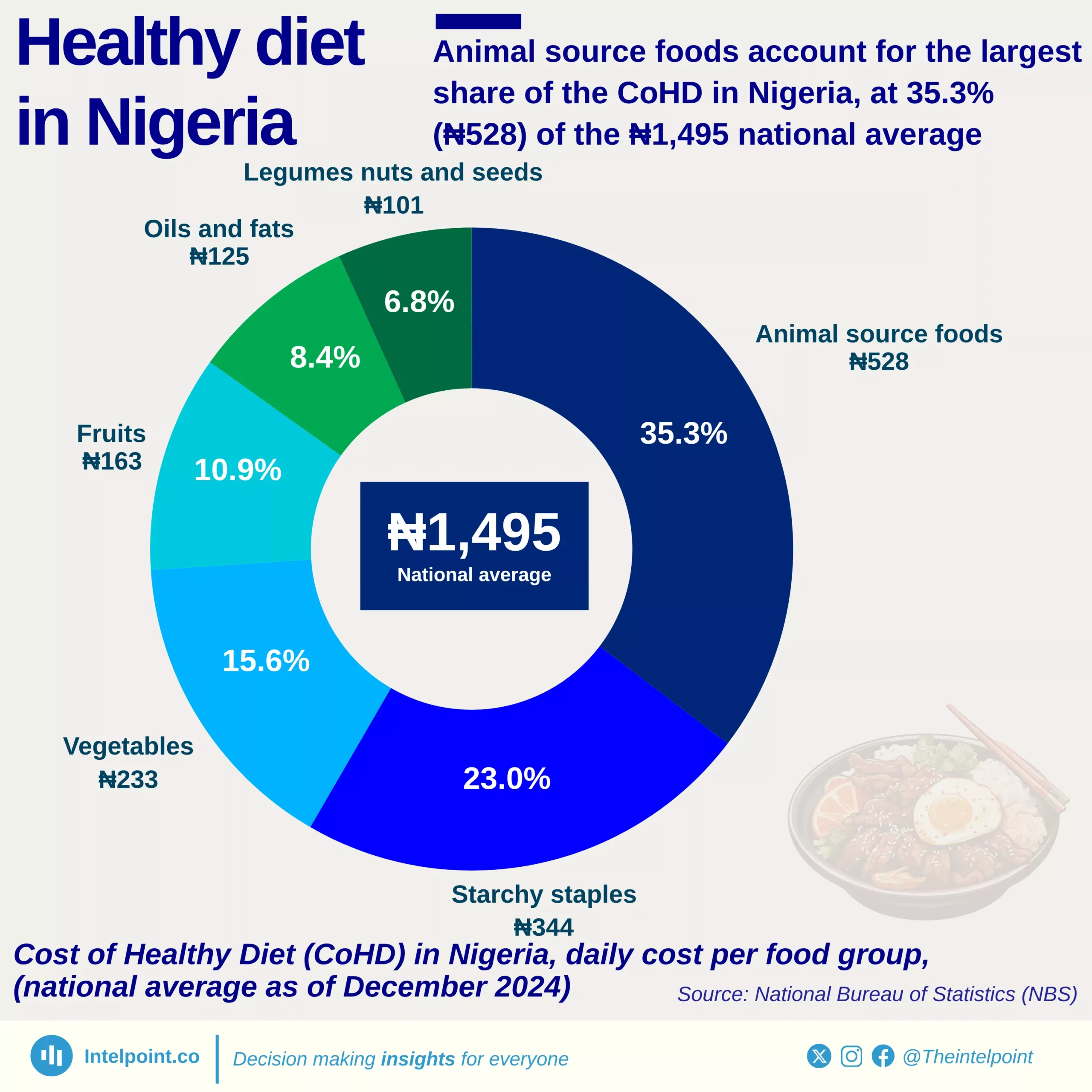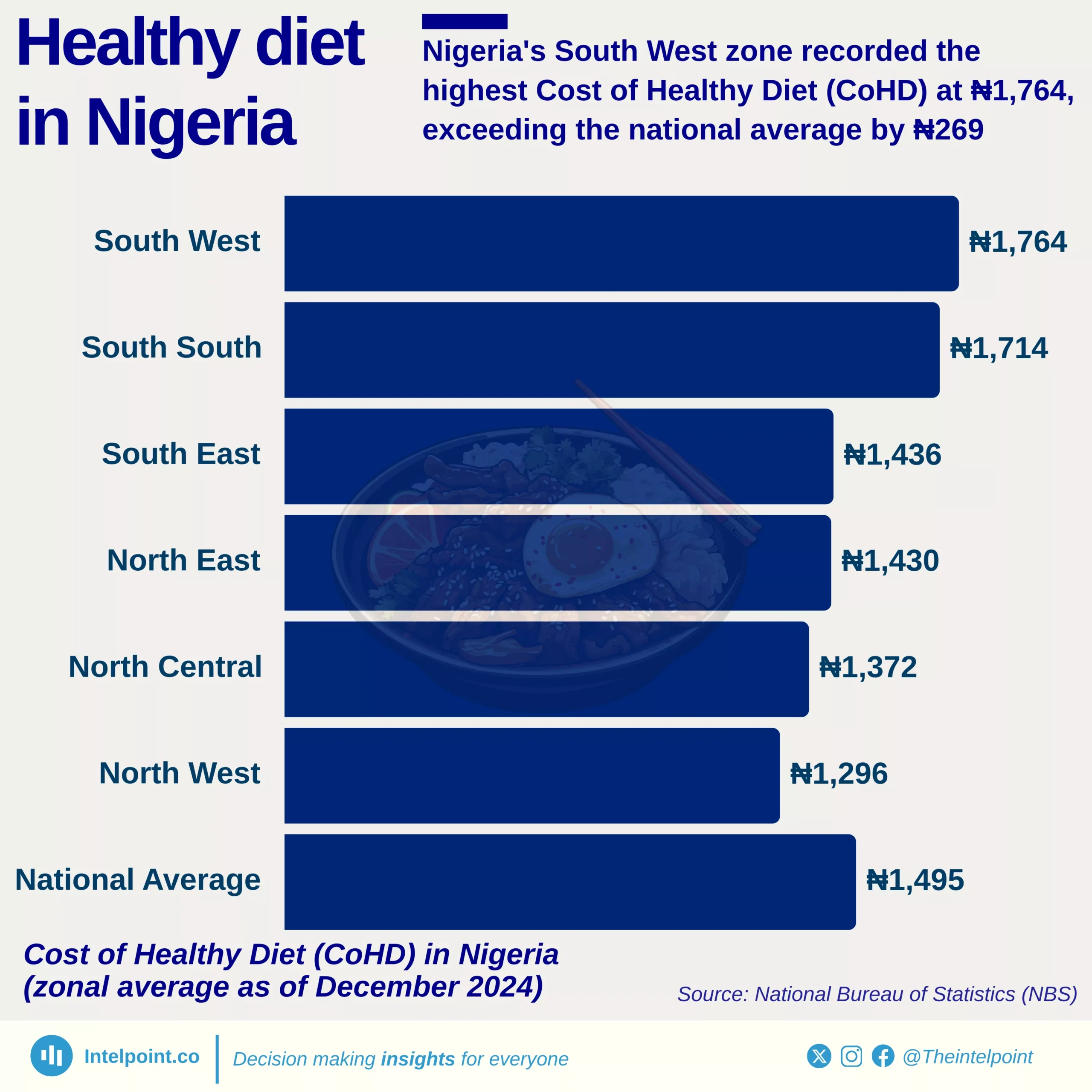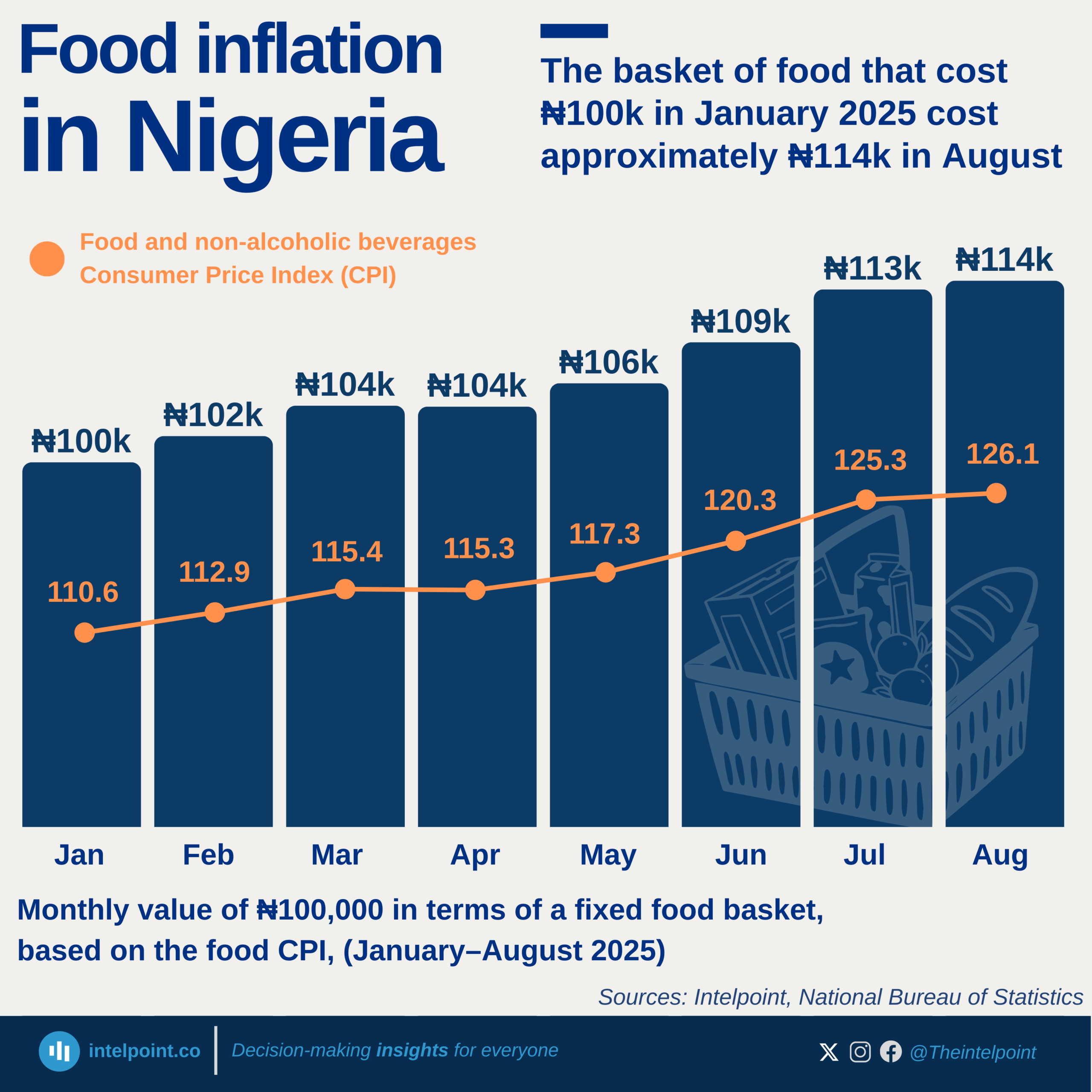Food prices have continued to increase as Nigeria's headline inflation hit 34.19% in June 2024, one of the highest globally.
NBS's monthly survey for the average prices of selected food items in Nigeria as of June 2024 shows that tomatoes have gone up by 321%, yam by 296%, and staples — beans, rice, and plantain — have also seen significant increases. These are the top ten food items most hit by inflation in Nigeria in the past twelve months.
